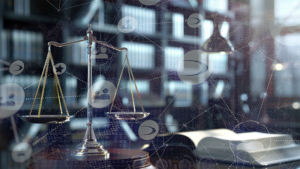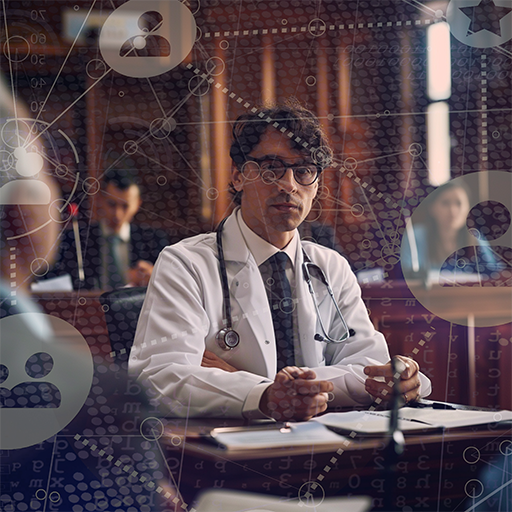Tips for Medical Expert Witnesses
Introduction
Providing expert witness testimony in medical cases requires a blend of clinical expertise and practical communication skills. This article explores strategies for medical professionals to excel in depositions and testimonies, ensuring their input is both credible and impactful. Learn more now about medical witness preparation strategies.
The Importance of Preparation
Thorough Case Review
Be thoroughly prepared and review all relevant materials. Understand the case details, the medical records, and the objectives of the parties involved.
Honest and Truthful Testimony
Always be honest and truthful. Never lie or embellish facts, even under pressure.
Consistency and Clarity
Ensure consistency in your responses. Contradicting yourself can damage your credibility. Use simple, clear language that can be easily understood by a judge or jury.
Effective Communication Strategies
Listening and Responding
Listen carefully to each question and answer what is asked. Do not volunteer additional information.
Staying Professional
Stay calm, composed, and professional throughout the deposition. Do not get flustered or emotional, even if the questioning becomes aggressive.
Handling Hypotheticals
Be cautious with hypothetical questions. Think carefully before answering, and stick to your area of expertise.
Simplifying Complex Medical Concepts
Breaking Down Information
Simplify complex information into digestible pieces. Use precise explanations, analogies, or visual aids like flowcharts and diagrams.
Metaphors and Analogies
Employ metaphors and analogies to relate complex medical ideas to familiar objects or scenarios.
Visual Aids
Utilize visual aids such as diagrams, illustrations, and charts to clarify and emphasize important points.
Best Practices for Metaphors and Analogies
Simplification
Use metaphors and analogies to break down intricate medical ideas into more relatable concepts for the jury.
Appropriate Comparisons
Select metaphors that are accurate and do not mislead. Ensure they resonate with the jury’s background and experiences.
Cultural Sensitivity
Choose metaphors that are culturally sensitive and relevant to a diverse jury pool.
Risks Associated with Metaphors
Misunderstanding and Misconceptions
Metaphors can oversimplify complex concepts, leading to misunderstandings. Ensure your metaphors do not reinforce incorrect beliefs.
Cultural Insensitivity
Avoid metaphors that are not culturally appropriate. They can create confusion or alienation.
Balancing Language
Balance metaphorical language with clear, factual information to support your testimony.
Common Themes in Medical Metaphors
Military and Warfare Metaphors
These can set an adversarial tone and may not be appropriate for chronic conditions or palliative care.
Mechanical Metaphors
They risk oversimplifying complex biological processes.
Sports and Leisure Metaphors
While relatable, they may not accurately capture the seriousness or complexity of medical conditions.
Critical Considerations for Depositions and Testimonies
Preparation and Understanding
Review all relevant case materials and understand the legal definitions, such as the standard of care.
Clear and Concise Answers
Focus on answering questions directly and succinctly. Avoid over-explaining or volunteering additional information.
Managing Emotions
Stay calm under pressure and manage any fears or anxieties related to testifying.
Visual Aids and Clarification
Use visual aids to explain complex concepts and ask for clarification if a question is unclear.
Strategies for Communicating Complex Concepts
Simplify and Visualize
Break down information into simple, clear terms and use visual aids to enhance understanding.
Collaborate with Legal Team
Work closely with attorneys to develop a cohesive strategy for presenting your testimony.
Practice Communication Skills
Develop the ability to articulate complex medical concepts clearly and concisely to a non-medical audience.

Witness Preparation Sessions
Multiple Sessions
Conduct at least two preparation sessions to address issues and refine responses.
Safe Environment
Create a safe, low-pressure environment where witnesses can express concerns and practice.
Experiential Learning
Use mock examinations and role-playing exercises to simulate real-life scenarios.
Reducing Defensive Behaviors
Realistic Mock Examinations
Simulate actual deposition conditions in a safe space to help witnesses practice and improve.
Psychological Support
Work with psychology experts to manage anxiety and stress and teach techniques for staying calm.
Communication Skills
Provide guidance on effective verbal and non-verbal communication to avoid appearing defensive.
Legal Framework Overview
Qualifications and Ethical Obligations
Medical witness preparation strategies is crucial. Medical professionals serving as witnesses must adhere to strict ethical guidelines:
- Qualifications: Testify only in areas where you have appropriate training and recent experience.
- Honesty: Provide honest testimony that is unaffected by financial compensation.
- Confidentiality: Protect patient health information unless legally required to disclose it.
Types of Medical Testimony
- Fact Witnesses: Treating physicians who testify about their direct observations and interactions with the patient.
- Expert Witnesses: Provide specialized opinions based on their expertise, reflecting current scientific standards and accepted practices.
Basis of Medical Testimony
Medical testimony is based on the following:
- Patient Examination: Observations were made during the patient examination.
- Medical History: Information provided by the patient regarding symptoms and medical history.
- Medical Tests: Results from diagnostic tests and procedures.
- Medical Literature: Knowledge from medical education, texts, and ongoing practice.
Legal Standards and Review
- Standard of Care: Expert witnesses must consider the standards of care at the time of the event.
- Cross-examination: Prepare for cross-examination to test the credibility and reliability of your testimony.
Organizational Oversight
Medical licensing boards and professional societies maintain high standards for medical witnesses:
- Review and Discipline: These organizations assess claims of false or misleading testimony and can issue disciplinary sanctions.
- Promoting Standards: They ensure that testimony reflects the full knowledge of the medical community.
Challenges and Preparation
- Communication Skills: Develop skills tailored to the litigation setting.
- Witness Preparation: Use mock examinations and role-playing to manage anxiety and avoid defensive behaviors.
Role of Technology
Medical Witness Preparation strategies
- Digital Documentation: Electronic health records (EHRs) and document management systems are used to review case materials.
- Mock Examinations: Record and review mock depositions using video recording and virtual reality simulations.
- Online Training: Use e-learning platforms for courses on legal concepts and communication skills.
Presentation of Testimony
- Visual Aids: Create clear, concise slide presentations, diagrams, and infographics.
- Remote Testimony: Use telehealth platforms and video conferencing tools for remote testimony.
- Digital Evidence: Utilize document cameras, projectors, and interactive whiteboards for clear evidence presentation.
Enhancing Communication Skills
- Speech Analysis Software: Provide real-time feedback on tone, pace, and clarity.
- Virtual Coaching: Use online coaching for anxiety management and effective communication.
- Mindfulness Apps: Practice relaxation techniques with apps like Headspace or Calm.
Collaboration and Coordination
- Secure Communication: Use encrypted messaging apps and collaborative platforms for real-time communication and document sharing.
- Case Management Software: Track case progress and manage deadlines with integrated systems.
MEDICAL WITNESS PREPARATION STRATEGIES Common Challenges and Solutions
Legal Complexity
Solution: Invest in legal education and collaborate with experienced attorneys.
Maintaining Impartiality
Solution: Focus on evidence-based opinions and clearly communicate your unbiased role.
Handling Cross-Examination
Solution: Prepare thoroughly, maintain composure, and avoid speculation.
Distinguishing Charting from Causation
Solution: Emphasize patient care over perfect charting and focus on medical facts.
Understanding the Standard of Care
Solution: Learn the legal definition and articulate the appropriate standard for the case.
Managing Stress and Emotions
Solution: Practice stress management techniques and seek support if needed.
Communication Challenges
Solution: Develop litigation-specific communication skills and avoid defensive behavior.
Conclusion
By following these tips and strategies, medical expert witnesses can provide compelling and credible testimony in legal cases. Preparation, clear communication, and professional demeanor are crucial to success in depositions and testimonies. Incorporating technology and addressing common challenges ensures that medical witnesses are well-prepared, confident, and impactful in their roles.
Read more from others:
- State Bar of Arizona | State Bar of Arizona State Bar Convention
- Arizona Attorney Magazine | The Expert Witness Guide

Are you an Attorney?
We’re here to help! Let us connect you with qualified professionals who are available for depositions and testimonies. Our database includes over 15,000 experts with a wide range of specialties. Reach out today to fast-track your search for an expert witness.
Are you an expert?
Join a thriving community of over 15,000 experts at Expertinfo.com, where your knowledge is valued and your expertise makes a difference. With 40 years of experience in connecting experts like you with attorneys who need your specialized skills, we’re dedicated to facilitating successful collaborations. Don’t miss the opportunity to impact critical legal cases and expand your professional network. Reach out today and become part of our extensive database of leading experts. Your expertise isn’t just needed—it’s essential. Connect with us now and start making a difference!






